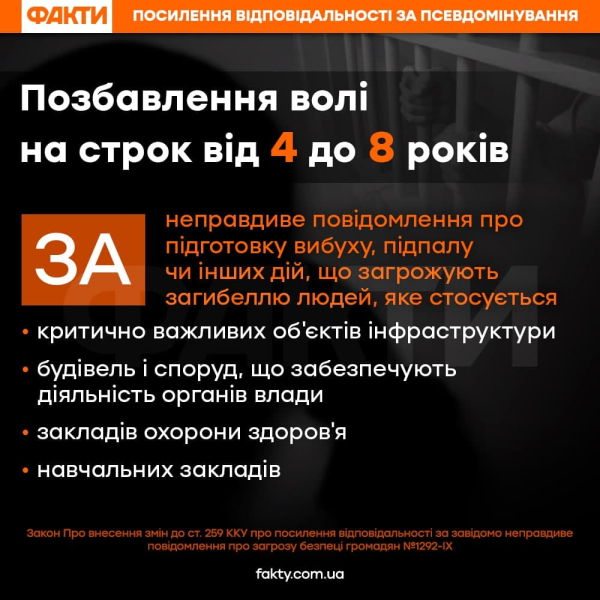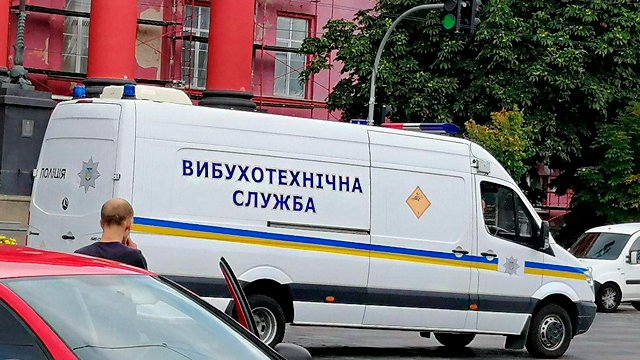Since the beginning of 2022, the number of reports about the alleged mining of various objects in Ukraine — from schools and shopping centers to courts and airports – has increased.
Therefore, bomb technicians are sometimes forced to check hundreds of objects a day and evacuate thousands of people. Usually, after checking, explosives are not found, but the process itself creates a lot of inconvenience for citizens.
So, on January 17, in Cherkasy, the Department of Education and Humanitarian Policy recommended that all schools in the city switch to distance learning after a pseudo-miner’s message.
On the same day, three metro stations were closed three times in Kiev after reports of their alleged mining. A day earlier, data appeared on the possible mining of the international airports of Kiev (Zhuliany) and Borispol.
At the same time, explosives experts checked information about the mining of shopping and entertainment centers in Kiev, among which were Gulliver, Ocean Plaza and the Department Store Ukraine.
On January 18, a message about the alleged mining of educational institutions in Kiev was received by the call center of the Security Service of Ukraine. Law enforcement officers had to check 40 schools in different districts of the capital. And on January 20, the police of Vinnytsia and Dnipro received an email about the alleged mining of all schools.
In parallel with a series of pseudo-demonstrations, a large-scale hacker attack was carried out on government websites in Ukraine on the night of January 14. Then the Ministry of Digital Transformation reported: all the evidence suggests that Russia is behind it.
Thus, she seeks to destabilize the situation in our state by spreading fakes about the drain of personal data of Ukrainians.
— All the evidence points to the fact that Russia is behind the cyberattack. Moscow continues to wage a hybrid war and is actively building up its forces in the information and cyberspace–” the ministry noted.
The Ministry of Finance recalled that Russian hackers most often work against the United States of America and Ukraine, and their goal is to shake the political situation in these states. Therefore, the hacker attack on the websites of state authorities was regarded as a manifestation of Russia’s hybrid war against Ukraine.
This was explained by the fact that Moscow’s goal is not only to intimidate Ukrainian society, but also to destabilize the situation in our state through the shutdown of the public sector. In addition, the Russian Federation seeks to undermine the trust of Ukrainians in the government.
The head of the Center for Strategic Communications, Igor Solovey, in a comment to ICTV Facts, noted that mass reports about mining in Ukraine are part of an information and psychological campaign aimed at intimidating citizens.
– Then another question logically arises – who benefits from it? It is beneficial to those who are the enemy of Ukraine – internal and external. And who does it? We recently experienced the biggest cyberattack in recent years (after 2017, when there was a NotPetya attack on the energy infrastructure of Ukraine). This attack was linked to Russia’s failure in negotiations with the United States on NATO. Moscow thus seeks to force Kiev to capitulate through the pressure of Ukrainian society on its authorities—” he explained.
Igor Solovey also added that the rattling of Russian weapons on the borders with Ukraine, cyber attacks on Ukrainian infrastructure, as well as statements about mining are events of the same order. According to him, all this is an attempt to divide and intimidate Ukrainians.
But he stressed that Ukraine has been resisting Russian aggression since 2014, so it is impossible to intimidate Ukrainian citizens with such cheap tricks.
Responsibility for pseudomination
The fact that none of the mining reports were confirmed in 2021-2022 does not mean that the attackers will be able to escape punishment.
Thus, article 259 of the Criminal Code of Ukraine provides that for knowingly false information about the preparation of an explosion, arson or other actions that may lead to the death of people or other grave consequences, a pseudo-miner faces imprisonment from two to six years.

If the objects of a deliberately false report of mining have become critical infrastructure facilities or buildings or structures that support the activities of public authorities, or health care institutions, or educational institutions, or if it has entailed serious consequences or is committed repeatedly, then the violator faces imprisonment from four to eight years.

